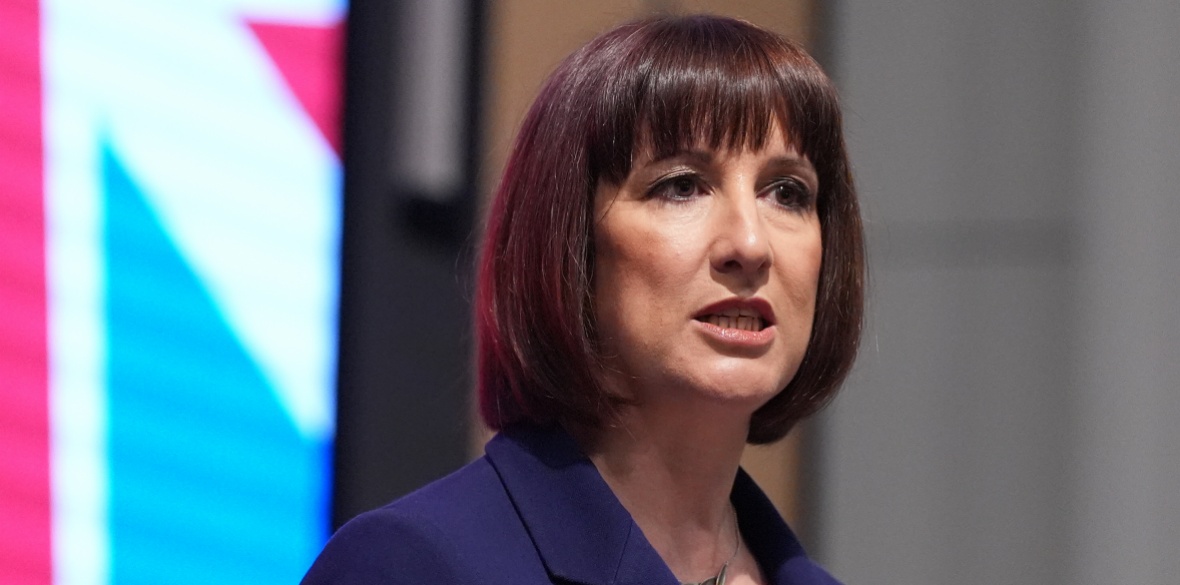This is the last article you can read this month
You can read more article this month
You can read more articles this month
Sorry your limit is up for this month
Reset on:
Please help support the Morning Star by subscribing here
DIGGING out the ideological roots of present-day Labour politicians — think Wes Streeting’s infatuation with NHS privatisation — is an unappetising task.
Rachel Reeves has done us a service in explaining that her thoughts about the reinvigoration of present-day British capitalism are informed by the early 20th-century thinker Karl Polanyi.
The utility of Polyani’s broadly culturalist take on economic theory is that economic growth, or to put it another way, increased profits arising from the more extensive exploitation of labour and its investment in the productive economy, is the necessary precondition for avoiding the working class adopting disruptive or populist ideas.
Her starting point is precisely the one that the left claims in its critique of Britain’s economy — the failure of private capital to invest, raise productivity and innovate and the necessary accompaniment to that state of affairs, inequality.
For Labour politicians “inequality” is the polite way of discussing what the left calls exploitation and oppression.
At the root of this condition are the twin features of present-day economic life over the last two decades; runaway corporate profits and the declining value of workers’ wages.
Where Reeves might take a productive page from Polyani’s approach is to consider the historical context in which economic ideas emerge.
In as far as she has adopted this approach it is to take more than a page out of Gordon Brown’s strategy in the run-up to New Labour’s election victory which was to assure big capital, the banks and the City generally that Labour in government posed no threat to the accumulation of capital, to property and profits.
For any trade unionist or Labour supporter who thinks such an approach is the cloak for a secret strategy of restorative economic justice for working people, think again.
The months before New Labour took office were a tortured period of frustrated hopes as one shadow minister after another made concrete the consequences to poverty campaigners, global justice advocates, trade union leaders, anxious local government leaders, health service staff and educationalists of shadow chancellor Brown’s absolute determination to leave the Tories spending plans unchanged.
Today Reeves has made explicit Westminster Labour’s absolute adherence to the fantasy fiscal rule that debt should fall in the fifth year of the economic forecast.
The immediate consequence of this rule is, exactly as Brown determined in times past, a standstill of public expenditure.
Her pitch to big business and the banks has some credibility in that by emphasising Westminster Labour’s commitment to “stability” ie no challenge to the rich and powerful, Labour offers a better prospect to these people than the chaotic consequences of a continued Conservative conduct of economic policy.
This is a low bar set by Liz Truss and barely levitated by Jeremy Hunt.
The problem is that by invoking the image of a private-sector growth-led recovery she has abandoned any serious notion of a government-led strategy.
In abandoning the £28 billion green growth policy she has compounded her difficulties.
Here history illuminates her problem. Brown correctly calculated that the immense profitability of the financial sector and the City-led service economy gave him wriggle room to cream off enough revenue to fund a welcome expansion of social spending.
That this was accompanied by disastrous wars, the surrender of public assets to the private sector and daft PFI schemes does not detract from some of the beneficial consequences of shorter NHS waiting times and better early years provision.
The 2008 financial crash put an end to the illusion that a rerun is possible. Reeves’s prospectus is informed at least by this one shaft of capitalist realism.
Growth, even under capitalism, means taking control of capital.









